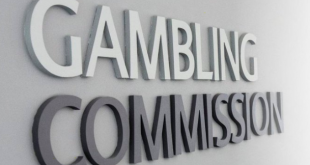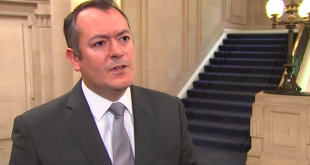Last week the UK government delivered on a pledge of the 2019 General Election, publishing the White Paper of its review of Football. Regulus Partners draws on the expected parallels and horse-trading of how football’s fan-led recommendations will resemble UK gambling’s forthcoming judgements…
The government demonstrated this week that, contrary to speculation, DCMS White Papers do exist. It has taken 22 months to arrive at legislative proposals since the then Culture Secretary, Oliver Dowden announced a ‘Fan led review of football governance’ (in the wake of scotched plans for a breakaway European ‘super-league’) – a relatively short gestation period by current standards. Inevitably, this week’s announcement invites speculation as to whether the department will adopt a similar approach where reform of the gambling market is concerned.
The White Paper, ‘A sustainable future – reforming club football governance’, is rather narrower in scope than many will have hoped and others will have feared; but it suggests potentially profound consequences. It recommends the establishment of an independent regulator to oversee the financial sustainability of the 116 professional football clubs in the top five men’s leagues in England (from the FA Conference up to the Premier League). It’s core purpose is to ensure the sustainability of the national game by maintaining a balance of power – preventing the biggest clubs from exerting too much influence and protecting smaller clubs (like the dearly departed Bury FC) from disappearing entirely. In pursuing this aim, the regulator will be required to consider the domestic and international competitiveness of the leagues; the ability of clubs to secure investment and compete for the best players; and the preservation of the game’s cultural heritage.
Club ownership and stewardship will be licensed (using ‘fit and proper’ tests) and boards will be required to produce financially sustainable business plans for the regulator to review. Teams will only be permitted to participate in approved competitions (although there is no suggestion that this will affect existing tournaments). The Government will set out clear parameters for the new body in order to guard against regulatory creep. This is a sensible ambition – but it remains to be seen how easy it will be to achieve in practice. Football’s eco-system does not lend itself to the drawing of neat borders and even good regulators may find it difficult to avoid straying into foreign territory in order to meet mandated objectives. Bad regulators on the other hand, often seek out new territory to annex. As the late Professor Peter Collins observed: “Regulation is almost certainly bad regulation if the primary beneficiaries are regulators for whom a proliferation of unnecessary regulations may mean an increase in their power, status and earnings.”
The football White Paper’s description of the powers, responsibilities and limitations of the regulator is long and involved, reflecting the complexity of the task assigned to it (including its relationship with the clubs, leagues, supporter groups and international bodies). The fact that the roles and responsibilities of the new body appear so tricky to define may hint at future organisational difficulties. The key challenge for the Government will not be the establishment of the regulator but ensuring its competence in the long term. The DCMS is already required to work with 43 public bodies (including the Gambling Commission); and history tells us that ministers (whose tour of duty in Culture is typically between six and 18 months) struggle to keep tabs on all of these agencies at all times.
In seeking to address a number of legitimate problems of football governance, it is possible that the Department may therefore have sown the seeds of future dysfunction. At the heart of the brewing problem is effectively a form of identity politics: if fans can claim a role in the governance of a sport and its commercial constituents on the basis of the strength of their feelings, it is hard to see how the regulator can do anything based on reason rather than populist appeasement. The proposed regulatory structure, which has virtue-signalling built in as the only available regulatory response, is more worthy of Blair, than Burke, Bagehot, or Denning; Parliament is taking another swipe at good governance in order to garner votes.
The White Paper smacks (inevitably perhaps) of compromise and horse-trading. In this way, there are parallels to be drawn with the rumoured content of the perpetually imminent White Paper on the review of the Gambling Act. The creation of a new organisation – be it a market regulator, a levy board or an ombudsman – is a classic political ‘fix’.
Its immediate significance is symbolic, to demonstrate to those who demand that ‘something must be done’ that something is in fact being done. It offers the chance for the Government to build consensus by encouraging a wide range of stakeholders to believe that it will somehow be in their best interests – even where those interests are in opposition – because they will be able to influence its operation.
This is not to say that such policy reforms cannot be effective and beneficial, but for this to happen sustained ministerial attention is required to ensure maintenance of Baldwin’s ‘five criteria for good regulation’:
- Is the action or regime supported by legislative authority?
- Is there an appropriate scheme of accountability?
- Are procedures are fair, accessible, and open?
- Is the regulator acting with sufficient expertise?
- Is the action or regime is efficient?
So in the absence of such scrutiny… as recent experience in the gambling market has shown, the best of intentions can swiftly unravel.
Featured article edited by SBC from ‘Winning Post’ Sunday 26 February 2023 (click on the below logo to access the full unedited analysis of Winning Post).










